Last Updated on August 5, 2021
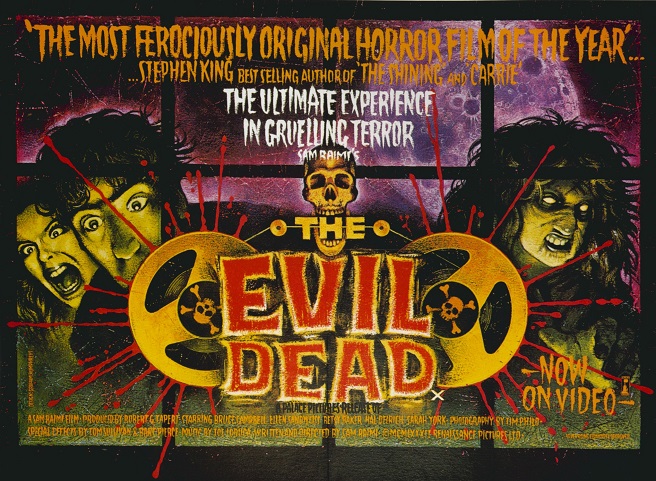
"That he is a genius is yet unproven; that he has made the most ferociously original horror film of 1982 seems to me beyond doubt." – Stephen King on The Evil Dead.
By now I'm pretty sure all of us horror fans know the story about how Sam Raimi's THE EVIL DEAD was a video nasty back in 1982 and was in danger of not finding US distribution at all.
Until one fateful day – at the Cannes Film Festival – Mr. Stephen King happened to see the movie and gave it a review that sent the sharks circling, eventually leading to THE EVIL DEAD's distribution deal.
Well, that article has been mucho hard to get ahold of over the last few decades, but today, courtesy of a user on Reddit, you can now read the full review in all its glory.
The review is showcased as a series of pics from the original TWILIGHT ZONE magazine in which it was printed. As of now no one has bothered to transcribe the damn thing – and don't look at me – so you'll just have to read it through in pictures. Not a bad way to go if you ask me.
You can find the two pics below and then, after giving the review a read through, make sure to let us know what you think of King's EVIL DEAD review on Facebook, Twitter, and/or Instagram!
Enjoy!
UPDATE: AITH reader Joseph 'Razorback' Smith has transcribed the ENTIRE review! Very cool! I have pasted it below.
"The Evil Dead"
Why haven't you seen it yet… and why you ought to.
By Steven King
"When I met Sam Raimi at the Cannes Film Festival in May of 1982, my first thought was that this fellow was one of three things: a busboy, a runaway American high school student, or a genius. He wasn't a busboy, and Raimi finished high school some time ago, although he has the sort of ageless sophomore looks that are going to keep bartenders asking to see his driver's license or state liquor card until he is at least thirty-five. That he is a genius remains unproven; that he has made the most ferociously original horror film of 1982 is beyond doubt. The only problem is that you may never see it.
Farnsworth Wright, the legendary editor of 'Weird Tales' in the 1930s, admitted — with some reluctance — that he had rejected one story, one single story, on the grounds that it might well be too gruesome for current tastes. The tale, by William Hope Hodgson, had to do with a maniac who was killing people and turning them into soup (this same idea formed the basis for Stanley Ellin's classic debut story, 'The Specialty of the House,' some fifteen years later). "When it's too much," Wright said, "class doesn't matter."
This may be the case with Raimi's film 'The Evil Dead'. Take a good look at the accompanying stills, dear reader, because most of the large American film distribution nets have now passed on Raimi's independently financed film. (The latest to pass was Paramount, which distributed the hugely successful — if brainless — 'Friday the 13th'; their verdict, like Wright's, was that too much was just too much.)
Raimi, a Michigan native now quartered near Detroit, was twenty when he directed and wrote 'Evil Dead'. (He was also one of the cameramen, assisted in the first half of the film by Tim Philo.) His producer, Rob Tapert, was twenty-six. The gruesome special effects were achieved in tandem by Tom Sullivan, twenty-four, and Bart Pierce, who is all of thirty. The five stars were college kids. The film was shot in sixteen millimeter and blown up to thirty-five for theatrical release. The resulting effect is grainy but oddly apt; the film has a weirdly convincing documentary look that no one has seen since George Romero's 'Night of the Living Dead', a film Raimi admits was a strong influence.
'The Evil Dead' has the simple, stupid power of a good campfire story — but its simplicity itself is not a side effect. It is something carefully crafted by Raimi, who is anything but stupid. Five college students on a holiday, two boys and three girls, find a deserted cabin and an ancient book — a Lovecraftian Book of the Dead — that turns them into unkillable zombies, one by one, until only the film's star, Bruce Campbell, is left. the only way to get rid of these zombies — the evil dead — is by dismemberment. Luckily a chainsaw is handy, and…
And it doesn't sound like much.
Well, neither does Hansel and Gretel or Bluebeard in the hands of an untalented teller. What Raimi achieves in 'Evil Dead' is a black rainbow of horror. The makeup of his zombies is derivative of Dick Smith's in 'The Exorcist', his plot is derivative of Romero's 'Dead' movies (even dismemberment as the antidote is derivative of these — remember the idiotic sheriff in 'Night' intoning that you had to "burn 'em or shoot 'em, but they move slow … they're dead, they're all messed up"?), and his small troupe of actors ranges from the merely adequate (Ellen Sandweiss and Betsy Baker) to the fairly good (Bruce Campbell, and in particular, Hal Delrich, who brings the happy, beer-swilling fraternity scuzzo to gruesome life). So, what's going on here?
Mostly what's going on is Sam Raimi, who is so full of talent that somebody unable to get it together might be tempted to wonder if gobbling the man's fingernails could possibly do any good.
In 'Evil Dead' the camera has the kind of nightmarish fluidity that we associate with the early John Carpenter; it dips and slides and then zooms in so fast you want to plaster your hands over your eyes. The film begins and ends with crazy exhilarating shots that make you want to leap up, cheering. (At Cannes, French cinema-freaks did exactly that.) In the first, we are skimming giddily over a swamp; in the last we come plunging madly down a wooded hill into that damned deserted cabin where all the madness, dismemberment, and lunacy occurred. This was no Steadicam, imported at five thousand dollars a day (as in 'The Shining'); it was, instead, what Raimi and company ingenuously called a "Shaky-cam." He describes it in the offhand manner that a wunderkind might explain how he made an atom smasher out of a couple of Campbell's soup cans for the Hicksville Science fair.
"We couldn't afford a Steadicam," he says, "so we improvised. We mounted the camera in the middle of a two-by-four about fifteen feet long. A couple of guys grabbed it, one on either end, and they just ran like hell." In some of 'Evil Dead's' other eye-popping shots, Raimi or Philo carried the camera — which weighed about ten pounds — strapped to one hand. Somebody ought to tell Kubrick, Spielberg, et al that there's really nothing to this stuff. Just bolt the camera to a two-by-four and run like hell.
'The Evil Dead' was basically a cottage production, much like 'Night of the Living Dead', which made it's appearance in less difficult (read pre-MPAA) times. Raimi and his two partners put up what money they could; he and producer Rob Tapert went after the rest. Tapert and Bruce Campbell, the film's star, dropped out of Michigan State University and raised much of the film's small budget (well under a million) from private investors: lawyers, Raimi says, doctors, builders, contractors — "people like that." To attract them, they made a kind of "pre-feature" in super-eight millimeter. "We did everything," Raimi says, laughing, from his office at Renaissance Pictures in Detroit. "We were busboys, we drove cabs, all that stuff." But it wasn't just to raise dough for the production, he emphasizes; they wanted to hire a good bunch of lawyers to hammer out an airtight investment agreement. And so they seem to have done, because the investors are happy enough. 'Evil Dead' may never play an American screen, but deals have been made in several foreign countries, including the lucrative Hong Kong market. The investors will probably get clear, mostly due to the care of Raimi's jury-rigged production company.
The film is now being handled by Irvin Shapiro, who may be the oldest and smartest handler of independent film productions in the free world — the real-life equivalent of Burgess Meredith in the 'Rocky' films. Shapiro may now be seventy, eighty, or a hundred and ten. No one really knows. But his career has been long and fabulous. Even in the 1930s, you could find him at the Cannes Film Festival. During that same decade, Shapiro bought a number of Picasso sketches from the artist himself, who traded them for coffee and brioche. Raimi himself related an Irv Shapiro story with relish. Raimi asked him where he'd gotten his start. "With Einstein," said Shapiro — or at least that's what it sounded like. Not sure what he was talking about, and with thoughts of E=mc2 filling his head, Raimi asked for clarification — whereupon Shapiro told him about doing publicity for Sergei Einstein's 'Potemkin'.
"I first saw Shapiro's name in 'Variety,' Raimi says, "in connection with George Romero." Shapiro has, in fact, sold a number of Romero's pictures, from 'Martin' and 'Dawn of the Dead' to 'Creepshow.' "I respect the man for his experience, and because he knows what the picture is worth," Sam Raimi says.
But so far, nothing is shaking in Raimi's native country, in spite of the standing ovations at 'Cannes'. The smart Hollywood thinking is that the day of the "raw horror film" has passed. Raimi is not happy about the idea, but in the meantime he's turned his attentions to a new picture. The working title is 'Relentless.' The same word might apply to Raimi himself.
Asked what he wants out of the business, he says: "Right now I want to make enough money to get my car fixed. It's been sitting out in front of my house since we finished 'Evil Dead', and my folks are pestering me to have it taken away. I don't want to do that. I want to get it fixed." Raimi's car, it turns out, is the one driven by the hapless college students in 'Evil Dead'. At one point it almost drops through a decaying bridge. The crew saved it after the crucial take, but as he turned into his home block after the film was wrapped, the engine caught on fire. It's sitting there now, in Detroit.
So's the film — waiting for an American distributor.
Any takers?
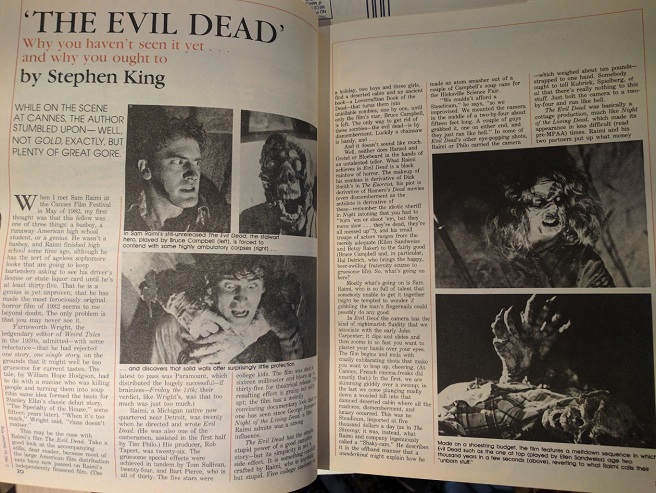
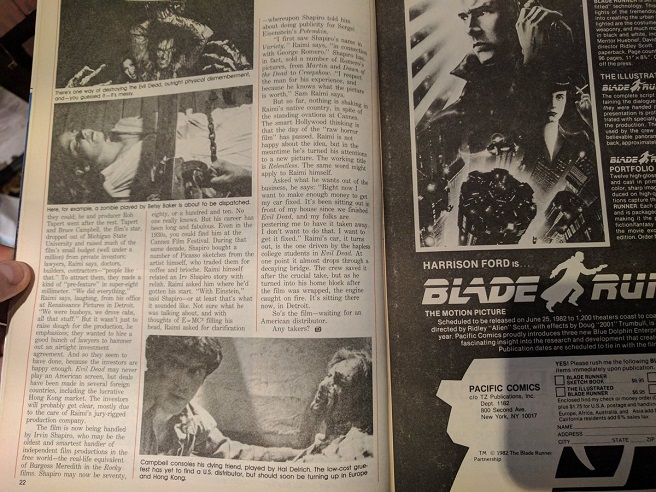


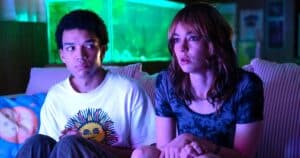




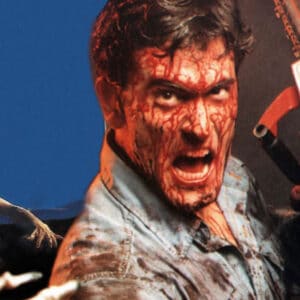


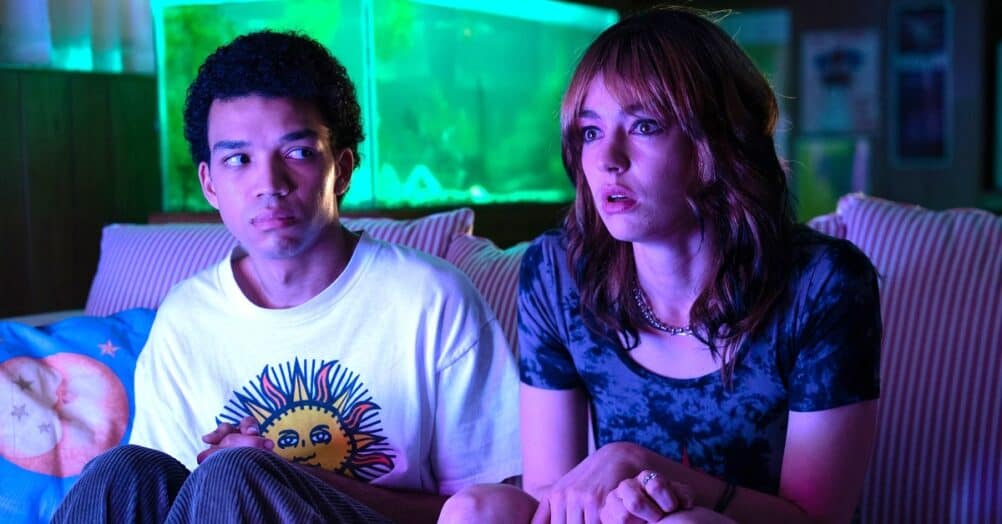




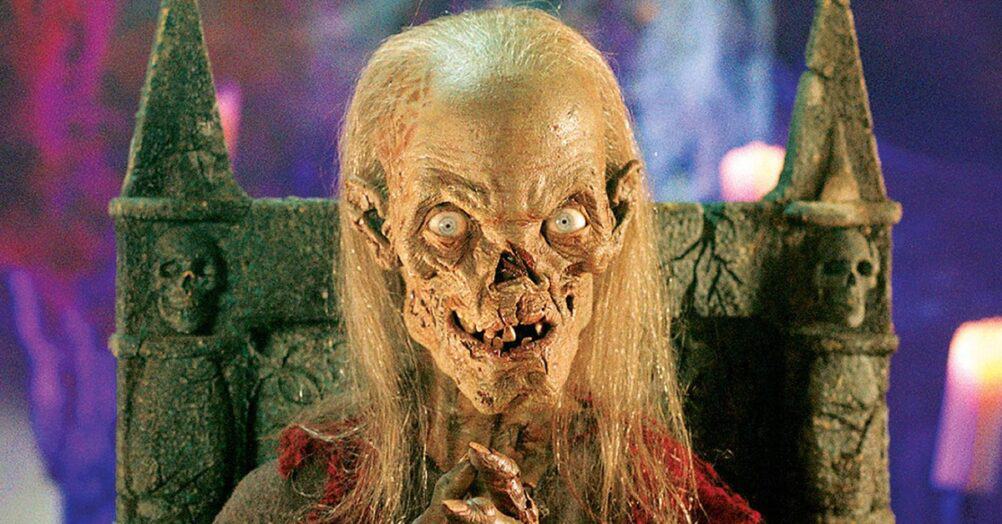


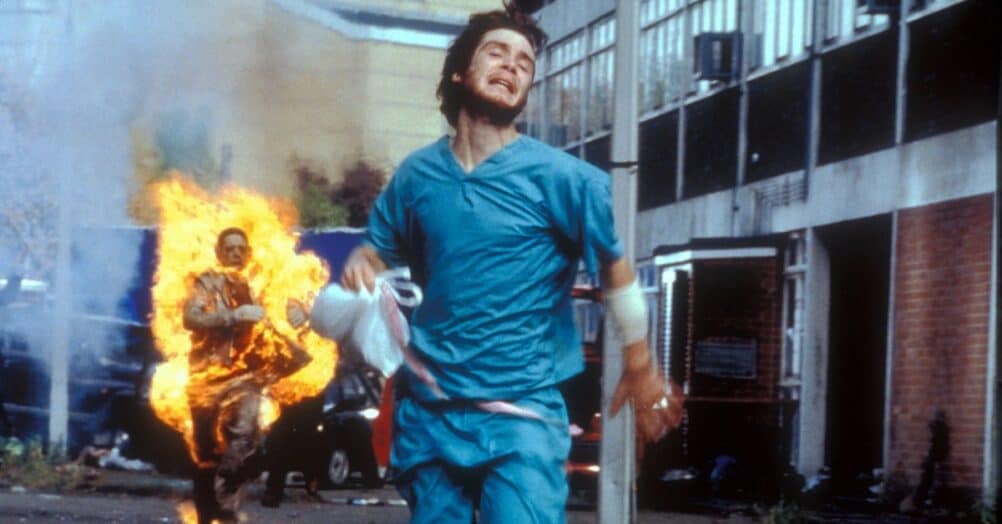

Follow the JOBLO MOVIE NETWORK
Follow us on YOUTUBE
Follow ARROW IN THE HEAD
Follow AITH on YOUTUBE